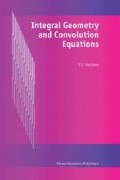Abstract
It is a commonplace of history that the modes of thought current in a given period and acquired by the labors of generations past are not always conducive to the advancement of science, but frequently act as a clog on its progress. Time and again inquirers who stood aloof from — and even in opposition to — the schools, such as Black, Faraday, and Julius Robert Mayer, have been the originators of great scientific advances — such as could only have sprung from their lack of bias and their freedom from traditional professional views. Though the intellectual vigor and unconstraint demanded by such performances are not the outcome of either art or education, but are distinctively a product of nature and the exclusive gift of individuals, nevertheless the mobility and untrammelled play of our thoughts may be greatly enhanced by scientific education, at least if it looks beyond the fostering of talents requisite merely for the mastery of the problems of the day. Historical studies are a very essential part of a scientific education. They acquaint us with other problems, other hypotheses, and other modes of viewing things, as well as with the facts and conditions of their origin, growth, and eventual decay. Under the pressure of other facts which formerly stood in the foreground other notions than those obtaining to-day were formed, other problems arose and found their solution, only to make way in their turn for the new ones that were to come after them. Once we have accustomed ourselves to regard our conceptions as merely a means for the attainment of definite ends, we shall not find it difficult to perform, in the given case, the necessary transformations in our own thought.
Access this chapter
Tax calculation will be finalised at checkout
Purchases are for personal use only
Editor information
Rights and permissions
Copyright information
© 1986 D. Reidel Publishing Company, Dordrecht, Holland
About this chapter
Cite this chapter
Mach, E. (1986). Introduction. In: McGuinness, B. (eds) Principles of the Theory of Heat. Vienna Circle Collection, vol 17. Springer, Dordrecht. https://doi.org/10.1007/978-94-009-4622-4_3
Download citation
DOI: https://doi.org/10.1007/978-94-009-4622-4_3
Publisher Name: Springer, Dordrecht
Print ISBN: 978-94-010-8554-0
Online ISBN: 978-94-009-4622-4
eBook Packages: Springer Book Archive

